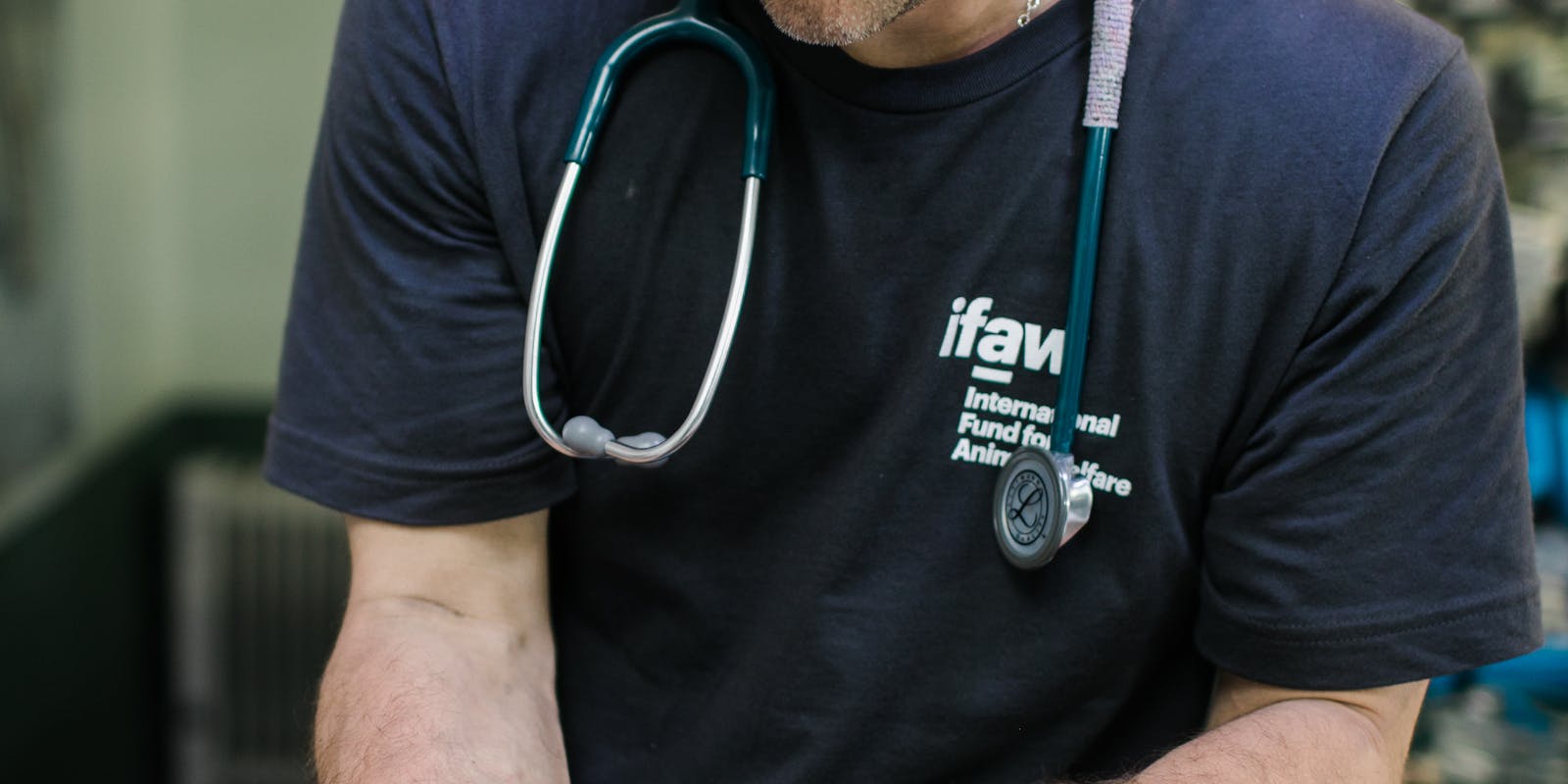Paws and Reflect: Essential Veterinary Care Tips for Your Furry Friends
Welcome to our latest blog post, where we delve into the world of essential veterinary care tips for your beloved furry companions. In this article, we will be shedding light on crucial aspects of pet care that often go overlooked but play a significant role in maintaining the health and happiness of your pets. From the importance of regular check-ups as the cornerstone of preventive veterinary care to understanding the significance of proper grooming, we've got you covered on all fronts.
Join us as we discuss the essential role of dental health in your pet's overall well-being, the key principles of optimal nutrition for a healthy and active lifestyle, as well as demystifying the world of vaccinations and why they are crucial for protecting your furry friends against diseases. By the end of this read, you will have a comprehensive guide on how to ensure your pets lead a healthy and happy life through diligent and informed veterinary care practices. Stay tuned for insightful tips and expert advice to help you better care for your four-legged family members!

Regular Check-ups: The Backbone of Preventive Veterinary Care
Regular check-ups for your furry friends are essential in maintaining their health and well-being. Preventive veterinary care is crucial in detecting any potential issues early and ensuring your pet's longevity and quality of life.
During regular check-ups, a veterinarian can conduct a thorough physical examination to check for any signs of illness or abnormalities. They may also recommend routine screenings like blood tests, fecal exams, and urinalysis to catch any underlying health issues that may not be visible externally.
Another vital aspect of regular check-ups is vaccination. Keeping your pet up to date on vaccines can protect them from serious diseases and prevent future health complications. Vaccinations are a cornerstone of preventive veterinary care and can significantly contribute to your pet's overall well-being.
Furthermore, regular check-ups provide an opportunity for discussions about nutrition, exercise, and behavior. Your veterinarian can offer tailored advice based on your pet's specific needs, ensuring they receive the proper care to thrive. By addressing these areas during check-ups, you can proactively prevent common health problems and maintain your pet's optimal health.
In conclusion, scheduling regular check-ups for your furry friends is not just a recommended practice – it is the cornerstone of preventive veterinary care. By staying proactive and keeping up with your pet's veterinary visits, you are investing in their long-term health and happiness. Remember, prevention is always better than cure when it comes to caring for your beloved pets
Dental Health Matters: The Importance of Oral Care for Pets
When it comes to veterinary care for our beloved furry friends, one crucial aspect that should never be overlooked is their dental health. Just like humans, pets require proper oral care to maintain overall health and well-being.
Poor dental hygiene can lead to a variety of health issues for pets, including gum disease, tooth decay, and even organ damage. Regular dental care is essential to prevent these problems and ensure your pet lives a long and healthy life.
Veterinarians recommend establishing a dental care routine for your pets that includes regular brushing, dental exams, and professional cleanings when needed. Brushing your pet's teeth regularly can help prevent plaque and tartar buildup, reducing the risk of dental issues. Additionally, providing dental chews, toys, or treats can help keep their teeth clean and healthy.
During your pet's routine veterinary check-ups, the veterinarian will also examine their teeth and gums to check for any signs of dental problems. Early detection of issues such as gum disease or tooth decay can help prevent further complications and ensure prompt treatment.
Remember, proper dental care is a crucial part of your pet's overall veterinary care. By prioritizing their oral health, you can help keep them happy, healthy, and by your side for years to come
Nutrition Essentials: Feeding Your Furry Friend for Optimal Health
Ensuring your furry friend receives proper nutrition is more than just providing meals; it's a fundamental aspect of their overall health. Just like humans, pets require a balanced diet to thrive and prevent a myriad of health issues. When it comes to veterinary care, nutrition plays a crucial role in maintaining your pet's well-being.
Feeding your pet high-quality, appropriate food is the cornerstone of good health. Veterinarians recommend choosing pet food that is specifically formulated for your pet's species, age, size, and any specific health conditions they may have. This tailored approach helps to meet your pet's nutritional needs and support their overall health.
Beyond selecting the right food, the proper feeding schedule is also vital. Overfeeding can lead to obesity and related health problems, while underfeeding can result in malnutrition and deficiencies. Your veterinarian can provide guidance on the correct portion sizes and feeding frequency based on your pet's individual requirements.
Moreover, it's essential to monitor your pet's weight and body condition regularly. Sudden weight loss or gain can indicate underlying health issues that need to be addressed promptly. Your veterinarian can assess your pet's body condition score and recommend adjustments to their diet if necessary.
In addition to the type and amount of food, water intake is equally important. Proper hydration is key to maintaining healthy organ function and overall well-being in pets. Make sure your furry friend has access to fresh, clean water at all times.
Lastly, incorporating nutritious treats and supplements into your pet's diet can provide additional health benefits. However, it's crucial to consult with your veterinarian before introducing any new food items to ensure they are safe and suitable for your pet.
By prioritizing your pet's nutrition as part of their veterinary care, you are taking proactive steps to support their health and longevity. Consult with your veterinarian to develop a personalized nutrition plan that meets your furry friend's unique needs and keeps them happy and healthy for years to come

Vaccinations Demystified: Understanding the Importance of Immunizations
As a responsible pet owner, ensuring your furry companions receive proper veterinary care is essential to keeping them healthy and happy. One crucial aspect of veterinary care that often raises questions is vaccinations. Understanding the importance of immunizations is key to protecting your pets from a myriad of potentially life-threatening diseases.
Vaccinations work by stimulating your pet's immune system to produce antibodies against specific diseases. By administering vaccines, veterinarians help prepare your pets' bodies to fight off these diseases if they are ever exposed to them in the future. This proactive approach significantly reduces the risk of your pets contracting serious illnesses, some of which can be fatal or have long-term health implications.
Routine vaccinations are not only beneficial for your pet's health but also contribute to the overall well-being of the pet population. Through widespread immunization, we can create herd immunity, making it harder for diseases to spread within communities of animals. This is particularly crucial for highly contagious diseases that can quickly affect many pets if left unchecked.
When it comes to vaccinations, it's important to follow your veterinarian's recommended schedule. Puppies and kittens require a series of vaccines to build up their immunity, while adult pets need regular booster shots to maintain protection. Vaccines are typically divided into core vaccines, which are essential for all pets regardless of lifestyle, and non-core vaccines, which may be recommended based on factors such as your pet's risk of exposure to certain diseases.
While vaccinations are crucial, it's also important to be informed about the potential side effects. Most pets experience minimal to no adverse reactions to vaccines, but some may exhibit mild symptoms like soreness at the injection site or slight lethargy. Serious reactions are rare but can occur, so it's essential to monitor your pets closely after vaccination and contact your veterinarian if you notice anything concerning.
By understanding the importance of immunizations and staying up-to-date with your pet's vaccinations, you're not only safeguarding their health but also contributing to the collective well-being of the animal community. Partnering with your veterinarian to create a vaccination plan tailored to your pet's specific needs is a proactive step towards ensuring a long and fulfilling life for your furry friends
**Grooming Guide: How Proper Care for Coats and Nails Supports Overall Well-being**
Grooming your furry friend goes beyond just keeping them looking neat; it plays a vital role in their overall well-being. Proper coat care not only keeps your pet looking their best but also contributes to their health. Regular grooming helps prevent matting, reduces shedding, and can alert you to any skin irritations, bumps, or lumps that may require veterinary attention.
One essential aspect of grooming is nail care. Overgrown nails can be uncomfortable for your pet, affecting the way they walk and potentially leading to issues like ingrown nails. Keeping your pet's nails trimmed to an appropriate length not only ensures their comfort but also reduces the risk of injuries and infections.
Moreover, maintaining your pet's coat and nails can also help in fostering the bond between you and your furry companion. It allows for quality time spent together, creating a positive association with grooming and handling that can be beneficial in various situations, such as vet visits or administering medication.
In addition to the physical benefits of grooming, the emotional well-being of your pet is also positively impacted. Regular grooming sessions provide an opportunity for relaxation and can help reduce anxiety or stress in some pets. By establishing a grooming routine early on in your pet's life, you can help them become more comfortable with the process and develop a positive attitude towards grooming.
While grooming your pet at home is essential, certain tasks, such as professional grooming or nail trimming, may require the expertise of a veterinarian or a trained groomer. Regular veterinary check-ups can also help identify any underlying health issues that may manifest through changes in your pet's coat or nails.
In conclusion, proper grooming care for your pet's coat and nails is a crucial component of their overall well-being. By incorporating grooming into your pet care routine and seeking professional assistance when needed, you can ensure that your furry friend not only looks their best but also remains healthy and happy for years to come
Conclusion
In conclusion, ensuring proper veterinary care for your furry friends is essential for their overall health and happiness. From regular check-ups to preventive care, grooming, dental health, nutrition, and vaccinations, each aspect plays a crucial role in maintaining your pets' well-being. By staying informed and diligent in implementing these veterinary care practices, you can help your four-legged family members lead a healthy and fulfilling life. Remember, your pets rely on you to provide the best care possible, so make their well-being a top priority. Here's to many more years of joy and companionship with your beloved pets!